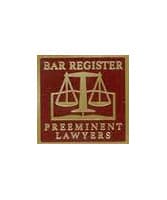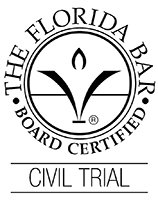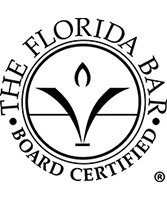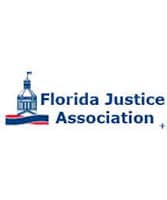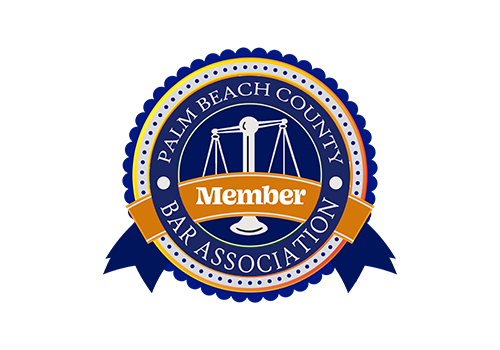
Did you sustain injuries in a West Palm Beach construction accident? Contact our construction accident lawyers in West Palm Beach immediately to learn about your legal options. You might be entitled to benefits from your employer’s workers’ compensation insurer.
Construction sites are inherently dangerous. Catastrophic accidents frequently occur in these locations in spite of safety precautions. When you get hurt in a construction accident, you might have severe injuries that prevent you from returning to work and earning a living. If that happens, filing a claim is necessary to cover your medical bills and lost wages.
At Schuler, Weisser, Zoeller, Overbeck & Baxter P.A., we have represented injured clients since 1978. We will protect your rights and pursue the workers’ compensation benefits you’re entitled to. Call us at (561) 689-8180 for a free consultation with one of our experienced West Palm Beach construction accident lawyers to learn more.
Common Types of Construction Site Accidents
A construction worker can get hurt in an on-the-job accident under various circumstances. Injuries can occur in the safest working conditions. Sometimes, accidents result from third-party negligence. For instance, when a manufacturer supplies defective machinery.
The most common types of construction accidents include:
- Fires and explosions – Faulty electrical wires, flammable materials, and other catalysts can spark a fire. Mishandling or improperly storing flammable substances increases the risk of explosions.
- Slip/trip and falls – An employee can slip or trip on loose materials or unstable flooring on a construction site. A twisted ankle, torn ligament, or broken bones could result.
- Roofing accidents – Unstable scaffolding or roofing might collapse, causing a worker to fall with it to the ground below.
- Crane accidents – Cranes require experience and skill to operate safely. An inattentive or careless operator might swing the crane into a nearby construction worker or building.
- Ladder accidents – Incorrectly positioning a ladder against a wall or on uneven ground is dangerous. It can lead to a fall and serious injuries.
- Scaffolding accidents – Scaffolding allows construction workers to complete tasks high off the ground. However, inadequate fall protection doesn’t protect workers from a fall. The scaffolding can collapse if materials are flimsy, damaged, or defective.
- Vehicle collisions – Construction vehicles simplify certain responsibilities. For example, dump trucks collect and remove garbage and waste from construction sites. However, careless operators can crash into buildings, other vehicles, and people.
- Fall from heights – Working on roofs, ladders, and scaffolding requires the proper safety gear and equipment. Anyone can fall from an elevated position and sustain a debilitating or life-threatening injury.
- Struck by objects or equipment – Defective equipment can malfunction during use. Unsecured objects might fall from a ladder or scaffolding, striking someone walking underneath.
- Toxic exposure – Construction workers often handle toxic chemicals. Exposure to substances like asbestos can cause respiratory illnesses, cancer, and other severe conditions.
Common Construction Accident Injuries
 Construction accidents can cause various injuries ranging in severity. Some injuries, such as dislocated joints and mild concussions, heal. Others require extensive treatment or may result in permanent disabilities.
Construction accidents can cause various injuries ranging in severity. Some injuries, such as dislocated joints and mild concussions, heal. Others require extensive treatment or may result in permanent disabilities.
The most common types of injuries in construction accidents include:
- Overexertion injuries
- Broken bones
- Paralysis
- Traumatic brain injury
- Loss of limb or amputation injury
- Internal bleeding
- Electric shock
- Repetitive motion injuries
- Spinal cord injuries
- Paralysis
- Nerve damage
- Psychological trauma
Workers’ compensation also covers occupational diseases, such as:
- Cancer
- Hearing loss
- Respiratory illness
- Burns, infections, and other skin conditions
- Tendonitis
- Chemical poisoning or exposure
- Mesothelioma
- Certain mental illnesses directly related to a physical workplace injury
Workers’ Compensation Benefits in Florida
Florida employers with one or more employees in construction must provide workers’ compensation. You must report your injury within 30 days of a job-related accident or diagnosis of an occupational injury or illness.
Three types of workers’ compensation benefits are available to eligible Florida construction workers.
Medical Benefits
Employers must provide coverage for medical care through a workers’ compensation insurer. Benefits cover all authorized medically necessary care and treatment, such as:
- Doctor’s appointments
- Prescriptions
- Medical testing
- Hospitalization
- Physical therapy
- Prostheses
- Attendant care
Benefits can also reimburse mileage for traveling to and from authorized medical providers.
Lost Wages and Other Monetary Compensation
Lost wage benefits are available if an on-the-job accident reduces an employee’s wages or prevents them from working entirely. The type of benefits you can recover depends on the circumstances, and that’s where experienced construction accident lawyers can guide you through the process.
Temporary Total Disability Benefits
Temporary total disability benefits cover a portion of lost wages. They apply when a doctor says an employee can’t work due to an occupational injury or illness. Payments are 66 2/3 percent of the worker’s average weekly wage at the time of the accident, up to a maximum limit under state law. Benefits are not payable for the first seven days of the injury or illness unless it lasts longer than 21 days.
Benefit payments can increase to 80 percent for up to six months after the occupational accident if it causes a severe injury, such as:
- Loss of a hand, arm, foot, or leg
- Paraplegia, paraparesis, quadriplegia, or quadriparesis
- Vision loss in both eyes
Temporary Partial Disability Benefits
Construction workers can get temporary partial disability if they return to work with restrictions. An injured or sick employee must be unable to earn 80 percent of their average weekly wage before the accident. Benefit payments depend on the year of the accident and the worker’s average weekly wage. Coverage is available for up to 104 weeks.
Impairment Income Benefits
Impairment income benefits kick in when a doctor places an employee at maximum medical improvement. That means the condition isn’t likely to improve with further treatment. The doctor will evaluate you for permanent restrictions and assign an impairment rating.
The amount and duration of benefit payments depend on multiple factors, such as:
- Year of the accident
- Average weekly wage before the injury or illness
- Whether the employee returns to work and earns their usual average weekly wage or higher
- Impairment rating
Permanent Total Disability Benefits
A severe injury that leaves an employee totally unable to work qualifies for permanent total disability benefits. Payments are at the same rate as temporary total disability benefits. They can continue until age 75 or for the rest of the injured person’s life if they are ineligible for Social Security benefits.
Death Benefits
Death benefits are available if you are the spouse, child, or surviving dependent of a construction worker who dies from a job-related injury or illness. The death must occur within one year of the accident or five years of a continuous disability resulting from the accident.
The insurer should pay up to $7,500 for funeral expenses within fourteen days of receiving the bill. Lost wage benefits are 66 2/3 percent of the deceased employee’s average weekly wage up to a $150,000 limit.
Reemployment Services
Covered employees can request reemployment services if a job-related injury or illness prevents them from resuming their work. The program includes services such as:
- Job-seeking skills training
- Selective job placement
- Vocational counseling
- Training and education
- Transferable skills analysis
- Job analysis
- Other necessary and appropriate services to assist a sick or injured employee in returning to work
Pursuing a Claim for a Non-Work-Related Injury
The risk of injury or death is significant for construction workers. However, anyone can get hurt in an accident, including visitors to the site, residents, and tourists passing by construction sites. Although cones, barriers, and other safety measures are meant to protect the general public from entering construction zones, injuries can occur.
You might be entitled to compensation if you sustained injuries in a construction accident due to someone else’s negligence. Whether you file a third-party injury claim or lawsuit against the liable party, the money you receive might compensate you for your:
- Physical disability or disfigurement
- Hospitalization, physical therapy, and other medical expenses
- Lost wages
- Lost earning capacity
- Pain and suffering
- Emotional distress
- Damage to personal property
You can also recover punitive damages in a lawsuit. You must show clear evidence of the defendant’s negligence or intentional misconduct to recover punitive damages.
In Florida, the statute of limitations for construction accidents allows a four-year timeframe to file a lawsuit. That means you have four years from the date of the construction accident to initiate your lawsuit against the at-fault party.
Third-Party Claims for Construction Workers
Workers’ compensation laws prohibit employees from suing employers for occupational illnesses and injuries. However, limited circumstances allow holding an employer liable for a workplace accident. For instance, an employer could be liable if they:
- Intentionally causes the injury
- Doesn’t carry workers’ compensation insurance
You might be entitled to compensation if the construction accident results from a third party’s negligence. Although you can’t sue your employer, someone else might be at fault for your injury.
Parties often involved in third-party claims and lawsuits include:
- Drivers – Someone using a forklift, crane, or another construction vehicle can be liable for unsafe operations.
- Property owner – The property owner might be at fault for dangerous working conditions if the construction site is on their property
- Manufacturer – A manufacturer might be liable for a construction accident for supplying a defective tool, machinery, vehicle, or equipment.
- Contractor – A contractor can contribute to a construction worker’s injury by violating safety protocols, leaving tools lying around, or working with drugs or alcohol in their system.
Get Help with Your Construction Accident Case
A construction accident can have long-term consequences. You should not handle a complicated insurance claim or lawsuit while trying to recover from your injury. Let our construction accident lawyers in West Palm Beach relieve your burden by taking on the responsibility for you. You can focus on treatment while we fight for the compensation you deserve.
Call our team at (561) 689-8180 or fill out our online form for a free consultation if you sustained injuries on a construction site.



